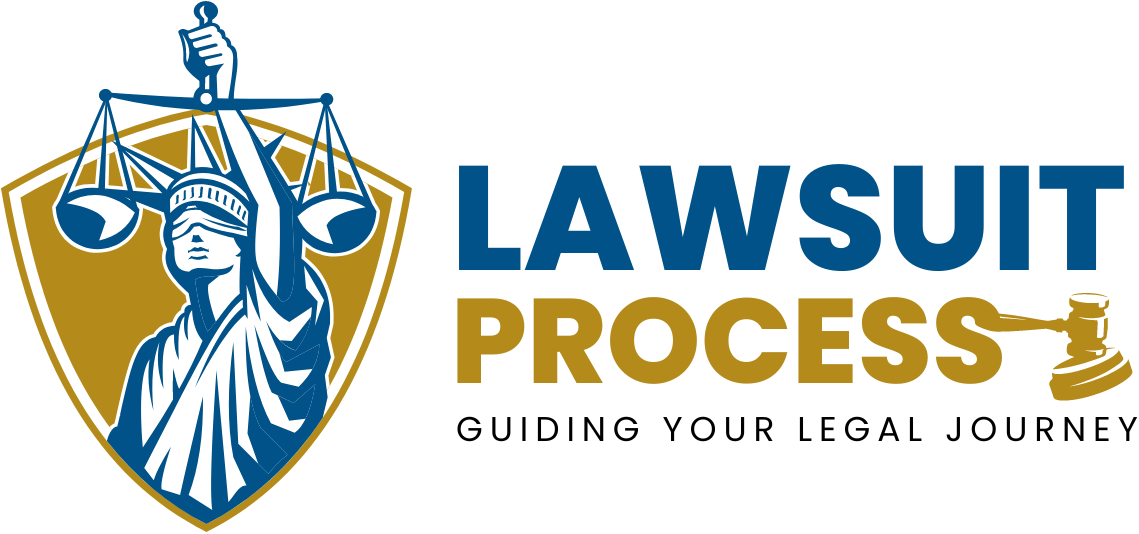Suffering a personal injury can be a life-altering experience, bringing not only physical pain but also emotional and financial stress. Navigating the complex legal landscape to seek compensation adds another layer of challenge. This is where a competent personal injury attorney becomes invaluable. Choosing the right attorney is crucial to ensure your rights are protected and you receive the compensation you deserve. This comprehensive guide will walk you through everything you need to know about selecting the best personal injury attorney for your case.
Understanding Personal Injury Law
Before diving into how to choose an attorney, it’s essential to understand what personal injury law entails.
What Is Personal Injury Law?
Personal injury law, also known as tort law, allows an injured person to file a civil lawsuit in court and get a legal remedy (“damages”) for all losses stemming from an accident or other incident. The primary goal is to make the injured party “whole” again through financial compensation.
Types of Personal Injury Cases
Personal injury law covers a wide range of situations:
- Automobile Accidents: Injuries from car, motorcycle, or truck accidents due to another’s negligence.
- Medical Malpractice: Harm caused by medical professionals failing to provide competent care.
- Slip and Fall Cases: Injuries from unsafe conditions on someone else’s property.
- Product Liability: Injuries from defective or dangerous products.
- Workplace Accidents: Injuries occurring in the workplace due to unsafe conditions.
- Wrongful Death: Legal action when someone’s negligence results in another’s death.
Understanding the nature of your injury and the corresponding legal category is the first step in finding an attorney experienced in that specific area.
Why You Need a Personal Injury Attorney
Attempting to handle a personal injury claim on your own can be overwhelming and may jeopardize your chances of receiving fair compensation. Here’s why hiring a personal injury attorney is essential:
Legal Expertise
Personal injury laws are complex and vary by state. An attorney understands the legal framework and can navigate the intricacies of your case, including:
- Statutes of Limitations: Deadlines for filing lawsuits.
- Comparative vs. Contributory Negligence: How your own negligence may affect your claim.
- Damage Caps: Limits on the amount of compensation you can receive.
Maximizing Compensation
An experienced attorney knows how to:
- Assess Damages: Accurately calculate current and future medical expenses, lost wages, and non-economic damages like pain and suffering.
- Negotiate with Insurance Companies: Insurers often aim to minimize payouts; an attorney can counter lowball offers.
Reducing Stress
Handling paperwork, legal procedures, and negotiations can be stressful. An attorney takes on these responsibilities, allowing you to focus on recovery.
Factors to Consider When Choosing an Attorney
Selecting the right attorney involves careful consideration of several factors:
1. Experience in Personal Injury Law
- Specialization: Ensure the attorney specializes in personal injury law, not just practices it occasionally.
- Years of Practice: More years often equate to more experience handling various cases and scenarios.
- Case History: Look into the types of cases they’ve handled and their outcomes.
2. Expertise in Your Specific Type of Injury
- Relevant Experience: If you have a medical malpractice case, an attorney with experience in that area will be more beneficial than one who specializes in car accidents.
- Understanding of Medical Terms: Particularly important in cases involving complex medical issues.
3. Reputation and Track Record
- Client Reviews: Read testimonials and reviews from previous clients.
- Professional Ratings: Check ratings from legal directories like Martindale-Hubbell or Avvo.
- Bar Association Records: Verify if the attorney is in good standing and if there are any disciplinary actions against them.
4. Communication and Availability
- Responsiveness: The attorney should be prompt in returning calls and emails.
- Clarity: They should explain legal terms and procedures in a way you understand.
- Personal Attention: Ensure your case won’t be passed off to junior associates without your knowledge.
5. Fee Structure
- Contingency Fees: Most personal injury attorneys work on a contingency basis, meaning they get paid only if you win.
- Percentage: Understand what percentage of your settlement the attorney will take.
- Additional Costs: Inquire about any upfront costs or expenses you might be responsible for.
6. Location
- Jurisdiction Knowledge: An attorney familiar with local laws and courts can be advantageous.
- Convenience: Proximity can make meetings and communication easier.
Steps to Find the Right Attorney
1. Research and Gather Referrals
- Personal Recommendations: Ask friends, family, or colleagues for referrals.
- Online Searches: Use legal directories and search engines to find attorneys in your area.
- Professional Networks: Contact local bar associations for recommendations.
2. Check Credentials
- Licensing: Verify that the attorney is licensed to practice in your state.
- Board Certifications: Some attorneys have certifications in personal injury law.
3. Initial Consultations
- Schedule Meetings: Most attorneys offer free initial consultations.
- Prepare Questions: Have a list of questions ready to assess their suitability.
4. Ask the Right Questions
- Experience with Similar Cases: “Have you handled cases like mine before?”
- Case Strategy: “What is your approach to a case like this?”
- Potential Outcomes: “What are the possible outcomes of my case?”
- Communication: “How will we stay in touch throughout the case?”
- Fees and Costs: “Can you explain your fee structure in detail?”
5. Evaluate Their Professionalism
- Office Environment: Is the office organized and professional?
- Staff Interaction: How does the attorney interact with their staff?
- Punctuality: Were they on time for your appointment?
Red Flags to Watch Out For
- Unrealistic Promises: Be wary of attorneys who guarantee specific outcomes.
- High-Pressure Tactics: Avoid those who pressure you into signing contracts quickly.
- Lack of Transparency: If they’re evasive about fees or unwilling to provide references, consider it a red flag.
- Poor Communication: Delayed responses or unclear answers are warning signs.
Making the Final Decision
After gathering all the information, take the time to weigh your options:
- Compare Attorneys: Look at their experience, fees, and your comfort level with them.
- Trust Your Instincts: Choose someone you feel confident will represent your best interests.
- Review the Contract: Before signing, make sure you understand all terms and conditions.
Understanding the Legal Process
Being aware of the legal steps involved can help you set realistic expectations:
1. Initial Investigation
- Evidence Gathering: Collecting medical records, police reports, witness statements.
- Legal Theories: Determining the legal basis for your claim.
2. Filing a Claim
- Demand Letter: Sending a demand to the at-fault party’s insurance company.
- Negotiations: Engaging in settlement discussions.
3. Litigation
- Filing a Lawsuit: If negotiations fail, your attorney will file a lawsuit.
- Discovery Process: Both sides gather information from each other.
- Trial: Presenting the case before a judge or jury.
The Attorney-Client Relationship
Building a strong relationship with your attorney is crucial:
Trust
- Open Communication: You should feel comfortable sharing all details with your attorney.
- Confidentiality: Trust that your information will be handled discreetly.
Transparency
- Case Developments: Expect regular updates on your case.
- Decision Making: You should be involved in major decisions regarding your case.
Participation
- Cooperation: Provide necessary documents and information promptly.
- Engagement: Stay informed and ask questions when unclear.
Small Firms vs. Large Firms
When choosing between a small or large law firm, consider:
Small Firms
- Personal Attention: May offer more personalized service.
- Consistency: Likely to work with the same attorney throughout.
Large Firms
- Resources: Might have more resources for complex cases.
- Specialization: Access to attorneys specializing in different areas.
Common Mistakes to Avoid
- Choosing Based on Advertisements Alone: Ads can be misleading; always research further.
- Not Meeting in Person: Personal interaction can reveal a lot about compatibility.
- Ignoring Your Gut Feeling: If something feels off, it’s worth considering other options.
After Hiring an Attorney
Understand what to expect after hiring:
Regular Updates
- Case Progress: Regular communication about developments.
- Strategy Changes: Updates if the approach needs adjustment.
Documentation
- Keep Records: Maintain copies of all documents and correspondence.
- Expense Tracking: Document all expenses related to your injury.
Preparation
- Depositions: Be ready to provide sworn testimony.
- Court Appearances: Attend hearings or trials as necessary.
Handling Disputes with Your Attorney
If issues arise:
Address Concerns Directly
- Communication: Discuss problems openly with your attorney.
- Resolution: Work together to find a solution.
Seek Mediation
- Third-Party Assistance: Use mediation services if direct communication fails.
Know Your Rights
- Termination: You can end the attorney-client relationship, but be aware of potential financial obligations.
Alternative Options
If hiring an attorney is not feasible:
Legal Aid Societies
- Free Services: Offer assistance to those who can’t afford an attorney.
Pro Bono Services
- Volunteer Attorneys: Some lawyers offer free services for certain cases.
Self-Representation
- Risks: Not recommended due to the complexity of personal injury law.
The Impact of State Laws
Be aware that:
Statutes of Limitations
- Deadlines: Vary by state and type of injury.
Comparative vs. Contributory Negligence
- Compensation Impact: Your own negligence can reduce or eliminate your claim.
Damage Caps
- Limits on Compensation: Some states cap non-economic damages like pain and suffering.
Latest Trends and Considerations
Technology Use
- Case Management Software: Improves efficiency and organization.
- Virtual Consultations: Convenient for clients unable to meet in person.
Specialized Law Firms
- Niche Expertise: Firms focusing on specific types of personal injury cases.
Client Empowerment
- Transparency: Increased demand for clear communication and involvement.
Final Thoughts
Choosing the right personal injury attorney is a critical step in ensuring that you receive the justice and compensation you deserve. By taking the time to research, ask the right questions, and consider all factors, you can find an attorney who not only has the expertise but also aligns with your needs and values. Remember, the right attorney will not only advocate for you legally but also provide the support and guidance you need during this challenging time.
Your choice of a personal injury attorney can significantly influence the outcome of your case. Investing time in the selection process is an investment in your future well-being. The right attorney will fight for your rights and provide peace of mind during a tumultuous period. Don’t rush the decision; use this guide to help you make an informed choice.










